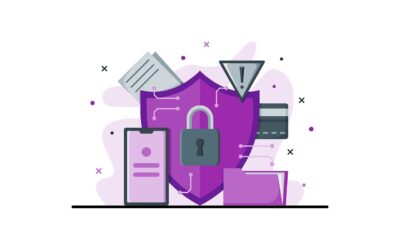It’s critical that you protect your business’ important assets, including perhaps the most important of all: its data. One of the best ways to do this is by implementing a solid backup solution. But what’s the best way to approach data backup? After all, every business is going to have different needs. We’re here to tell you all about these different needs, and how your organization can implement a reliable backup solution based on yours.
The first part of implementing a backup strategy is to look at what it means to take reliable backups of your data. A reliable backup is one that you can count on to work for your company if for some reason your network or infrastructure is damaged or fails. Of course, you’ll always hope that you never have to use the backup, but that doesn’t mean that you’ll never have to. The idea is to prepare for the worst, even if you never need it, if only to make sure that an unexpected event never puts your company in jeopardy.
Why Do You Need a Backup?
Before wondering why anyone would risk their business like this, keep in mind that many organizations out there don’t back up any of their data. In reality, everything should be backed up, as a worst-case scenario could ensure your business’ demise. This is why all businesses need to be mindful of data backup and take steps to secure their futures. Since you presumably know the value of your organization’s data, what kind of backup solution should you implement? Let’s talk a little bit about how you can minimize the effects of data loss while ensuring that you’re not wasting your budget away on a solution that doesn’t work.
Creating Reliability with Your Data Backup
Putting together a winning data backup strategy is easier said than done. Your business has different data needs than others, as well as different priorities and strategies. Some companies will want a comprehensive data backup solution that backs up every single file on the network, while others might only need specific parts of it backed up. Either way, creating a reliable solution will be at the core of your data backup endeavors, as you’re wasting valuable revenue if you’re not optimizing your solution to meet your needs.
What do we mean by reliable? In the event of a data loss scenario, we mean that your data should be able to be recovered in a usable format. Your ideal backup solution would need to be relevant, available, and secure.
Here are some suggestions to help you get the most protection from your data backup solutions.
- A hard drive-based backup system is a good jumping off point. You can connect an external hard drive or a network-based storage device. This backup can work while you’re working, as well as provide a physical copy of your data. The main advantage of this is so that it can be restored quickly.
- A cloud-based platform is also important. Your data backups can be sent to an off-site premise via the cloud. The cloud also provides encryption so that your data won’t be at risk to data thieves or hackers.
- Make copies of data at intervals: Your data backup solution will need to take backups at certain intervals. Depending on the solution, you should be aiming for at least every 15 minutes.
- Ensure verification: Your data backups are useless if they don’t work. Make sure that you regularly test your backups and make sure that you have a solution that gives you positive or negative verification to keep you in the loop about the effectiveness of your backup.
Does your business need data backup? Machado Consulting can help. To learn more, you can reach out to us at (508) 453-4700, or you can fill out the form below and have our team reach out to you!



